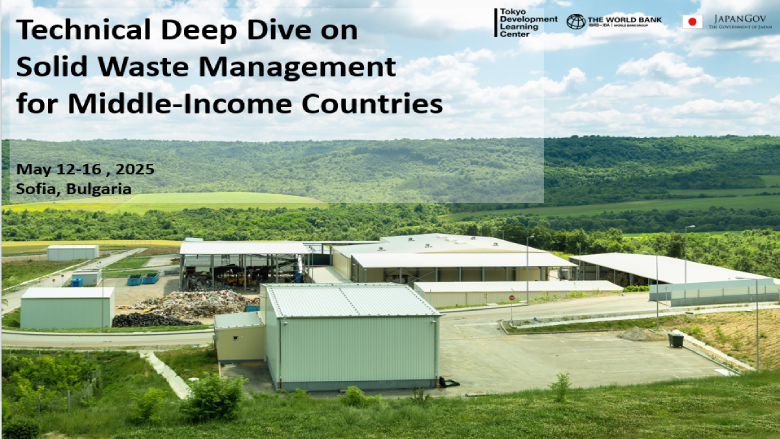
Solid waste management (SWM) is a global challenge that is strongly linked to climate change, urban sustainability, and public health. In particular, municipal solid waste has become one of the most urgent development issues worldwide. In 2020, approximately 2.24 billion tonnes of municipal solid waste were generated globally, and this figure is projected to rise by 73% to 3.88 billion tonnes by 2050. With rapid urbanization and economic growth, waste generation is increasing sharply in many middle-income countries (MICs), while existing infrastructure, financial capacity, and institutional arrangements struggle to keep pace. Effective waste management is essential not only for improving urban resilience, but also for creating jobs and supporting economic growth. Without comprehensive reforms, the transition toward a circular economy remains difficult. Among a range of urban topics, SWM is the topic that the World Bank Tokyo Development Learning Center (TDLC) has repeated the most, counting 6 deliveries since 2016.
To better understand the issue and support efforts in solid waste management in middle-income countries, the TDLC organized a Technical Deep Dive (TDD) on SWM for middle-income countries in Sofia, Bulgaria, from May 12 to 16, 2025. This regional TDD followed the first regional TDD held in 2024 in Abidjan, Côte d’Ivoire, which focused on low-income countries. A total of 53 participants from 9 countries- Armenia, Bosnia and Herzegovina, Colombia, India, Indonesia, Morocco, Tajikistan, Tunisia, and Uzbekistan- joined this learning event.
TDD participants shared common challenges faced by their respective countries, such as inadequate infrastructure, institutional and governance gaps, financial constraints, and limited public awareness. The TDD thematic sessions highlighted policy experiences from Japan, including its circular economy initiatives and lessons from the inter-municipal Waste-to-Energy (WtE) project in Kakogawa City, as well as advanced treatment practices from Bulgaria. Practical discussions explored key elements for solid waste management (SWM), including policy design strategies, models of public-private partnerships (PPPs), and technical solutions. Participants also visited solid waste management facilities in Sofia, including a mechanical and biological treatment plant, a composting plant, landfill site, and a recycling facility. During the visits, they learned about landfill development, composting and recycling processes, and the city’s waste information management systems.
Coming soon: summary video and photos of this TDD.